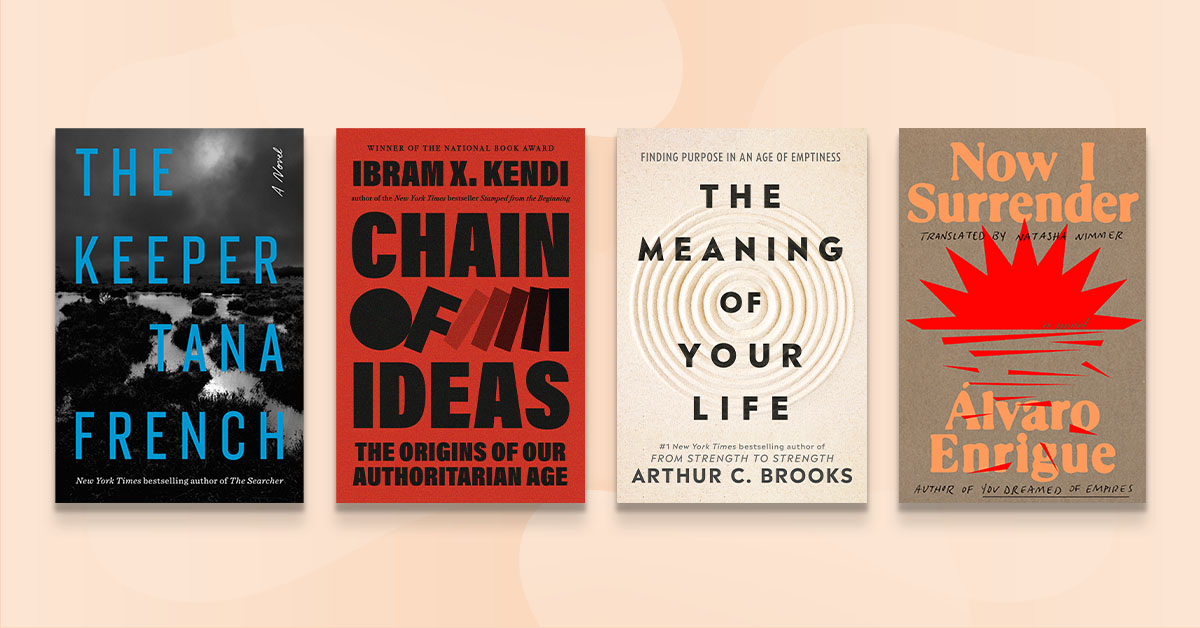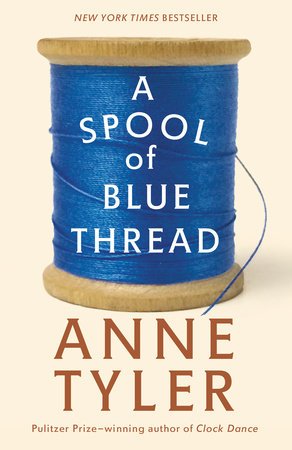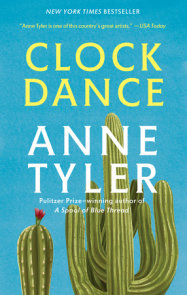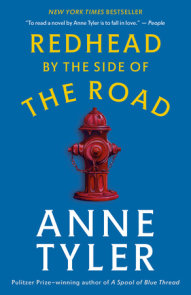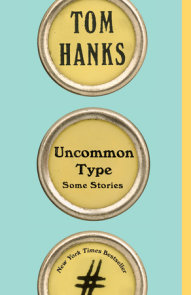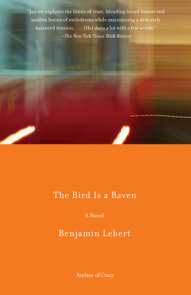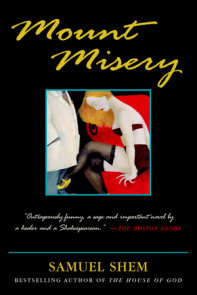READERS GUIDE
A Conversation Between Anna Quindlen and Anne TylerWhen readers are asked about the novels of Anne Tyler, few of them will mention the Pulitzer Prize, the National Book Critics Circle Award, or the many months her work has spent on bestseller lists. But they almost always mention how much her books have spoken to their hearts. Dinner at the Homesick Restaurant, Breathing Lessons, Saint Maybe: For more than fifty years her work has been a literary touchstone on the subjects of family, love, loss, and resilience. To mark the paperback publication of this, her twentieth novel, she exchanged emails with writer Anna Quindlen, who recalled that when she published her first novel, Object Lessons, Tyler reviewed it in a thoughtful, kind, and teacherly fashion that she still holds dear.
Anna Quindlen: This novel, like so many of your others, is about the alchemy of family. Is there any point in writing about anything else, or is family really where the emotional action is in life, and in fiction?
Anne Tyler: I can’t count the number of times I’ve started a new book with the idea that this one will have nothing to do with families. But somehow, the minute I think of a character, I find myself considering the people he came from. I’ll bet that if I tried to write a thriller, I’d get sidetracked by the spy’s sibling issues.
AQ: This is also, in part, a novel about a love affair, a love affair with a house. “Houses need humans,” Red Whitshank says at one point; the novel also reflects how humans need houses. Do you feel that way about your house? And, by the way, are we really talking about houses here?
AT: Oddly enough, I have no particular attachment to houses. A few years ago I moved out of the house my children grew up in and I never gave it a backward glance. But while I was writing A Spool of Blue Thread I tried to imagine the story from a workman’s point of view, and I felt pretty sure that Red would be upset by the notion of a house abandoned. (Also that—-like a plumber I once knew—-he would roll his eyes at “Harry Homeowner” shortcuts.)
As for whether we’re really talking about houses: When I’m in the middle of a book, I’m thinking very concretely. I really am talking about houses. It’s only afterward that I notice some other, completely unintentional significance, and I believe it’s better that way. I distrust any symbolism that’s been thought out ahead of time.
AQ: As an oldest child, I’m a believer in birth order. How much of the chemistry among and between the Whitshank children is a function of that?
AT: Oh, birth order is crucial! I don’t know how I would flesh out a character without knowing his or her birth order. Firstborn -Amanda’s certitude, secondborn Jeannie’s mildness, lastborn -Denny’s resentment when Stem arrives . . . They all make sense to me.
I’m intrigued that you, like me, are an oldest child, because I have a feeling that a disproportionate number of writers are. I wonder if the parents’ more intense concentration on a child, when there’s only one, fosters a more vivid imagination in that child.
AQ: In the novel, you write of the Whitshanks, “Like most families, they imagined they were special.” I think that’s so profound. It reminded me of a quote from Sir Walter Scott about Jane Austen that I think also applies to you. He wrote, “The big bow–wow strain I can do myself like any now going; but the exquisite touch, which renders ordinary commonplace things and characters interesting, from the truth of the description and the sentiment, is denied to me.” Did you ever want to be a big bow–wow? And do you think those who follow that path are afforded more credibility than their quieter, more domestic colleagues?
AT: During the several times I’ve read War and Peace, I’ve found myself skimming the war parts and concentrating on the peace parts. Which is to say: It’s not Tolstoy’s big bow–wow abilities that I envy.
Granted, though, I have often wished for the ability to see the larger scene. I’m like my reclusive artist character in Celestial Navigation: After I leave a room I am usually unable to reconstruct the room as a whole, but I can tell you exactly what the little screws looked like in the electrical outlet in one corner. I would love to possess, instead, the vision to write something like Faulkner’s hilarious panoramic description of the townspeople trying to catch a herd of wild horses in The Hamlet.
As for credibility . . . well, I do think that big bow–wow books are widely considered more important, at least than those confining themselves to a smaller canvas.
AQ: Do you therefore agree with the complaint that male writers tend to be taken more seriously than female ones?
AT: Only to the extent that it’s usually the men who write the big bow–wow books. I can think of some quieter male writers—-Kent Haruf with his Benediction, Stewart O’Nan with Emily, Alone—-who haven’t been taken half as seriously as I feel they deserved.
AQ: I was going to ask if you consider your work more character– than plot–driven, but it occurs to me that perhaps that’s the nature of all really good fiction. Your thoughts? Is character, or characters, where you begin?
AT: Sometimes it’s a character who sets things off—-a stranger I notice on a street corner or someone I overhear speaking in a restaurant. How would it feel to be that person? is what I’m wondering. What would it be like to live his or her life? But other times it’s an idle rumination, like Why is it that families generally seem to cherish just two or three handed–down stories, and discard some others?
The one thing I absolutely never begin with is plot, because the fact is that I am hopeless at plots, and have to rack my brain to come up with the simplest little event.
AQ: I once had the good fortune to sit next to Grace Paley at dinner, and at some point she said, “Think how prolific we would have been if we hadn’t had children.” Now that those years are behind you, do you wonder how you managed to combine mothering with writing?
AT: First I’ll have to quell my pangs of jealousy that you got to sit next to Grace Paley! But while she may have been right that we’d all have been more prolific if we’d been childless, I question whether we’d be writing as well. I think of it as a trade–off: When my own children were little they certainly derailed my writing life, but then when I was able to pick it up again I had so many more layers to me, and I felt I knew so much more about the world.
AQ: A Spool of Blue Thread moves back and forth in time: We begin in 1994, move forward to 2012, go back to 1959. Does that mirror the way we think about life when we are closer to its end than its beginning? In other words, as a younger writer might you have been inclined to be more linear in your approach to this?
AT: I’ll have to confess to a purely mechanical reason for the times when the novel proceeds backward: I had planned to go on writing it till I died. I positively hate finishing a book! I made up my mind just to describe one generation after another, endlessly. I worried, though, about running out of generations, so I decided to tackle them in reverse order. That way, I could take the Whitshanks back to prehistory, if I lived that long. But then I discovered that the Whitshanks before, say, 1920 were a meager–spirited lot, and I had to end the book after all.
AQ: Much of this novel, like your others, consists of pitch–perfect dialogue. Do you read your work aloud before you’ve finished?
AT: I do. I started that after computers came along, because I write all my drafts in longhand and it was hard to catch tiny alterations when I was shifting my gaze constantly between paper and computer screen. So I began reading my final draft into a tape recorder, and then I could follow on the screen as I played the tape back. What I hadn’t foreseen is that hearing my own voice saying the words would point out any false notes, loud and clear. Now my favorite piece of advice for beginning writers is to read their dialogue aloud.
AQ: I once read an interview with the novelist Amy Bloom in which she said that each novelist essentially has one subject, and hers is love. What’s yours, and why?
AT: Endurance, I would say, if I really had to pick just one. I have always been touched and fascinated by how human beings in general manage to just keep on keeping on—-how they don’t give up on each other and how they set out every day all over again, even when they know it won’t be any different from the day before.
AQ: This is your twentieth novel, a sentence I am tempted to write in ALL CAPS. What’s changed in your fictional concerns or technique? And what’s stayed the same, is built inevitably into Anne Tyler’s writerly DNA? Is there something you know now about writing a novel that you would love to confide to the woman working on If Morning Ever Comes?
AT: My essential concern with family has not changed, but much about my approach to the act of writing is very different now. In the early days, I used to think that novels were somehow less authentic if they were revised in any way. They should be spontaneous, I figured—-tossed off without a second thought. These days, I revise and revise; I love revising. I always feel I begin by writing a bad book and then I stretch it and add layers and texture to it so that gradually, over its many incarnations, it grows into a better book.
To my earlier self I would like to say, “Relax. The story will come in due time. Trust your characters. Let them tell you what happens next.”
AQ: I would assume that at this point your routine is set to music. (Is it, literally? I listen to music while I write, but many of my fellow writers say they find that impossible.) Could you talk a bit about time of day, length of stay, size of desk, method of composition?
AT: You must have amazing strength of character! The one time I tried writing to music I fell subject to a wave of sentimentality; I couldn’t seem to separate myself from the music’s influence.
What I do like listening to as I write is the sound of ordinary life out in the street—-children playing and workmen talking. I write at a bare white desk beneath a window that I keep wide open whenever the weather allows. As soon as I’ve finished my morning walk I settle there, whether or not I feel I have anything to say. If nothing comes to mind, I might putter around with notes and such but I don’t push it, and I give up after an hour or so. If something does come, I write it down on unruled white paper with a Pilot P–500 black gel pen—-that part is nonnegotiable. I don’t even want to admit how many dozens of those pens I keep in stock in case they’re discontinued someday.
Whenever I feel stuck—-when I come to a moment in a chapter where the characters simply refuse to go another step forward—-I’ve learned that I should just turn back a few pages and start copying those pages onto fresh paper, and eventually the fork where I made a wrong turn will become apparent. It seems merely reading something over allows mistakes to slide past me; actually forming the words again makes the mistakes all at once stand out.
I always feel I’m knitting a novel; it’s practically a handicraft, which is why I need to do it in longhand. If my right hand ever developed arthritis, I’d probably have to change careers.
My writing mind clicks off at about 1:00 p.m. at the latest, which is earlier than it used to be, but I take comfort in the thought that I seem to get more done in the time I do have. Then I put my work completely out of my thoughts and go on with the rest of my life. That’s something I feel most women writers are exceptionally good at—-partitioning—-because many have had to do it so often back when they had young children.
AQ: You are not a writer who has a Twitter account or a Facebook page, who goes on book tour or the Today show. Eudora Welty once said, “Writing fiction is an interior affair. Novels and stories always will be put down little by little out of personal feeling and personal beliefs arrived at alone and at firsthand over a period of time as time is needed. To go outside and beat the drum is only to interrupt, interrupt, and so finally to forget and to lose. Fiction has, and must keep, a private address.” I know Welty is an influence on your work, and I wonder if that sentiment was an influence on your decision to keep a private address.
AT: I hadn’t heard that Eudora Welty said that, although it certainly makes sense to me. But my choice to stay as private as possible hasn’t been so much a conscious decision as a matter of personal temperament: I’m shy out in public, and nervous with audiences.
In recent years, as writers have been pressed to play more of a part in publicizing their books, I’ve undergone more interviews than I used to, and what I’ve learned from those experiences is that whenever I talk about writing, I can’t do any writing for some time afterward. I think it makes me too conscious of the gears creaking behind the curtain.
AQ: Some of your best-known colleagues have retired in recent years—-Philip Roth, Alice Munro. A BBC interview suggested that this would be your last novel. Say it ain’t so!
AT: I think that story got started because people misunderstood me when I said I planned never to finish A Spool of Blue Thread. But in fact there’s already a next novel, because the Vintage Hogarth Shakespeare series will be publishing my modern–day version of The Taming of the Shrew in 2016. I’m really not sure how I’d keep myself occupied if I didn’t have a pen in my hand.
Questions and Topics for Discussion
1. The novel opens and closes with Denny. Do you think he’s the main character? If not, who is?
2. We don’t learn the full significance of the title, A Spool of Blue Thread, until nearly the end of the book, on page 350. How did this delay make the metaphor more powerful? What is the metaphor?
3. On page 10, Tyler writes, “Well, of course they did hear from him again. The Whitshanks weren’t a melodramatic family.” What type of family are they? Compare the way you see them with the way they see themselves.
4. Chapter 2 begins with the Whitshank family stories: “These stories were viewed as quintessential—-as defining, in some way—-and every family member, including Stem’s three–year–old, had heard them told and retold and embroidered and conjectured upon any number of times” (page 40). Why are these two stories so important? Why is the story of Red’s sister important to Red’s family?
5. “Patience, in fact, was what the Whitshanks imagined to be the theme of their two stories—-patiently lying in wait for what they believed should come to them” (page 57). Do you agree? Do you think envy or disappointment might also be a theme of their stories? Which interpretation makes the most sense to you? Can you think of another linking theme?
6. How does Abby’s story about the day she fell in love with Red fit into the Whitshank family history? Why isn’t it one of the family’s two defining stories?
7. Much is made of Abby’s “orphans,” which we learn also includes Stem. What does her welcoming of strangers into her home say about her character? How do the others’ responses set up a subtle contrast?
8. Do Red and Abby have favorite children and grandchildren? Who do you think each one favors?
9. On page 151, Tyler writes about Abby: “She had always assumed that when she was old, she would have total confidence, finally. But look at her: still uncertain.” Do you think Abby’s family sees her as uncertain or lacking in confidence? Why?
10. Abby dies suddenly in an accident, just like Red’s parents did. When it came to his parents, “Red was of the opinion that instantaneous death was a mercy” (page 153). Do you think he felt the same way after Abby’s death?
11. Why didn’t Abby tell Red about Stem’s mother? Why didn’t Denny tell Stem? And why, after they learn the truth, does Stem make Red and Denny promise not to tell anyone else?
12. At Abby’s funeral, Reverend Alban speculates that heaven may be “a vast consciousness that the dead return to,” bringing their memories with them (page 189). What do you think of his theory? What do you imagine Abby would say about it?
13. Why did Red’s pausing to count the rings on the felled poplar make Abby fall in love with him?
14. The novel isn’t structured chronologically. How does Tyler use shifts in time to reveal character and change the reader’s perception?
15. What is the significance of the porch swing? What does it tell us about Linnie Mae and Junior? After reading their story, how did your opinion of Linnie Mae change?
16. The Whitshank house, built by Junior and maintained by Red, is practically a character in the novel. What does it mean to the Whitshank family? Why, in the end, does it seem easy for Red to leave?
17. On the train at the end of the novel, Denny sits next to a teenage boy who cries quietly. What is the significance of this scene?


